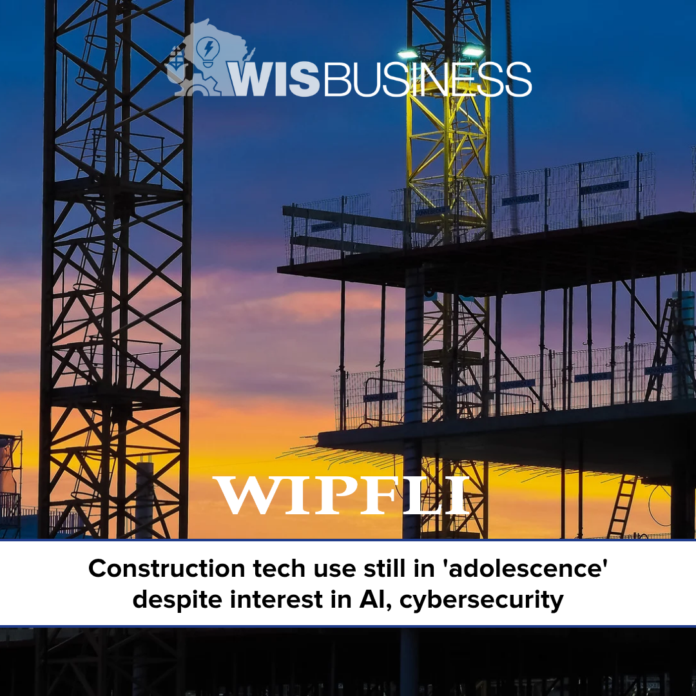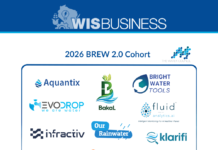Advanced technology use in construction is “still in its adolescence” despite many companies planning to integrate AI, according to a report from Milwaukee-based advisory firm Wipfli.
The company this week issued its latest report on the state of technology in construction, which relies on survey results gathered from businesses of varying sizes across the country. It found that while firms in this industry are investing in AI, cloud-based platforms, cybersecurity and green building technologies, “many struggle to optimize the tools they already have,” authors wrote.
While 82% of respondents said they have an AI strategy, most are at the “entry level,” using consumer-grade tools for tasks rather than fully integrating the technology into business operations or strategic decisionmaking, the report shows.
At the same time, 73% of respondents say they plan to invest in cybersecurity, reflecting the industry’s rising concern over data breaches. Eighty percent of respondents say they had at least one such breach over the last year, and almost half had three or more incidents.
“Even the biggest firms have blind spots in tech adoption,” said Brad Werner, partner and construction and real estate industry leader for Wipfli. “The real play now is scaling beyond pilots — turning tech from a sidecar into the engine for sharper, faster decision-making across the enterprise.”
The company conducted the national online survey in the spring, tapping 308 construction and real estate leaders. A third of the represented companies had less than $50 million in annual revenue, a third had between $50 million and $250 million, and the final third had more than $250 million.
The largest firms tended to have a higher level of tech maturity, showing their greater resources are being invested into applications like AI and data analytics. But even less established businesses are exploring these technologies, as 66% of the smallest firms in the survey say they have an AI strategy.
Wipfli says its findings suggest cybersecurity is “a concern and a priority, but not yet a strength” for the industry, noting construction companies are particularly vulnerable. That’s due at least in part to widespread use of mobile devices for financial transactions in the field, authors note, as well as frequent, large wire transfers.
Across eight different security categories the survey asked about, at least 70% of respondents said they were currently making or had made improvements in the last year.







